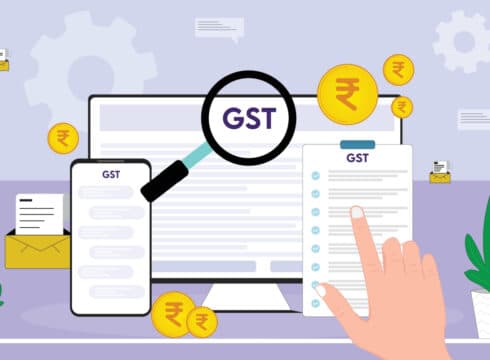The government is considering changing the overall GST law with an additional clause or modifying its definition with some changes in processes for the service industry
Currently, it is mandatory for companies to have a physical office in the state of their operations; however, this creates problems for companies from ecommerce and other sectors from the service industry
The government is now also considering a reverse charge mechanism to simplify the taxation process and enforcement
Inc42 Daily Brief
Stay Ahead With Daily News & Analysis on India’s Tech & Startup Economy
The Centre is reportedly working on simplifying the Goods and Services Tax (GST) regime for services industries, including ecommerce and travel, which may not have offices in the states of their operations.
The government is considering changing the overall GST law with an additional clause or modifying its definition with some changes in processes for the industry, Moneycontrol reported.
Citing a senior government official, the report said that a reverse charge mechanism may also be considered for such service sectors.
Under the current laws, it is mandatory for companies to have a physical office in the state of their operations for the tax officials to conveniently conduct audits and verifications if needed. However, ecommerce companies like Flipkart, Meesho, and Amazon and travel companies like MakeMyTrip and EaseMyTrip may not necessarily have offices in every state where they provide their services.
The GST Council is now looking to simplify the taxation process and enforcement, the official cited above said, as per the report.
The development comes after the Central Board of Indirect Taxes and Customs’ (CBIC) crack down on fake GST registrations, which caused problems for many companies from e-commerce and other sectors as they had only virtual offices in some states.
The report cited the government official as saying that it is hard to define the difference between fake and ecommerce operators in some cases, so it is important to define features to distinguish the genuine companies from the fake ones.
The development is likely part of the government’s efforts to simplify the taxation process and accommodate new and emerging business models. As part of this, the GST Council waived the mandatory registration requirements for small players to list on ecommerce platforms last year.
According to Inc42’s State Of Indian Ecommerce Report Q3 2023 the market is expected to grow to $120 Bn by 2027.
{{#name}}{{name}}{{/name}}{{^name}}-{{/name}}
{{#description}}{{description}}...{{/description}}{{^description}}-{{/description}}
Note: We at Inc42 take our ethics very seriously. More information about it can be found here.


